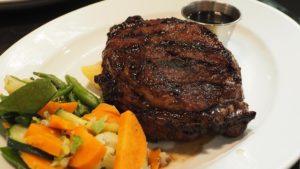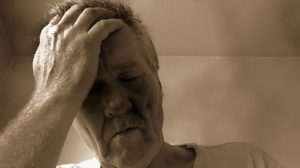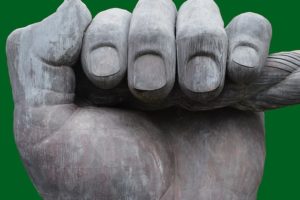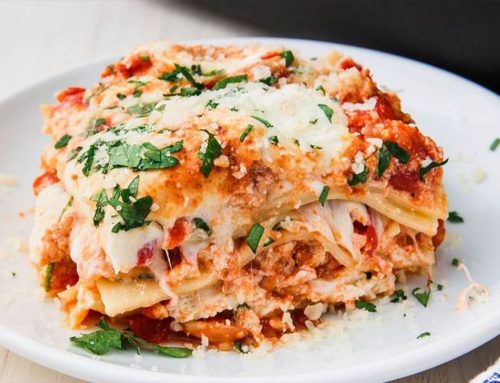12 Signs that you are Protein Deficient
While society would have us think we get more than enough protein in our diet, what I see as a nutrition professional is just the opposite. Too many are still on the low fat bandwagon and thus are eating a high carb diet. Many start the day with zero grams of protein!
What would happen if we did not consume protein?
The simple answer is that the body would not function normally without protein and its essential amino acids. While we can survive just fine by consuming a low carb diet, the same cannot be said for a low protein diet. Yet, many are doing this without realizing it.
Most people consume some protein daily and if you miss a few days due to illness you will be fine. However a long term protein deficiency can produce some significant symptoms but it can take up to a year of protein deficiency before these symptoms start to shout out at you. By then you may not be able to connect the dots of your symptoms to an unintentional low protein diet.
Here is why you need protein and what happens if you are deficient
- Compromised immune system. Are you picking up every germ that floats by? Is it taking you longer to recover?
- Protein deprived body will grow weaker over time
- Slow to heal from injury: you need protein to rebuild and heal.
- Your hormones, neurotransmitters, hemoglobin and antibodies all need protein to function.
- Protein is part of your nails, hair, skin, muscles and joints.
- It helps to regulate the pH of your body tissues and fluid
- You need it to transport nutrients
- It can be used for energy if necessary.
Bottom Line: protein is more important than we think!
Signs that you are not getting enough protein in your diet
- Nails: rub your finger across your nails. Do you feel ridges? This can indicate a protein deficiency. The more ridges you feel and the deeper you feel them, the more deficient you may be. Also look at the moon shape of the new incoming nail. Can you see it on all nails? If so this indicates adequate protein intake. What if you can see it on some but not all? This indicates some protein deficiency.
- Food Cravings: your diet may be instead high carb and low protein which can cause blood sugar spikes and drops which leads you to crave more carbs. Add in protein at each meal to balance out your blood sugar.
- Swelling of the feet and ankles: protein plays a role in keeping fluid from accumulating in the tissues especially the feet and ankles.
- Hair loss (can also be due to disrupted thyroid function)
- Brain fog: While there can be many root causes for brain fog it can also be caused by blood sugar dysregulation which is caused by too many carbs and sugar and too little protein to balance it out.
- Slow Wound healing
- Low libido
- Loss of muscle tone (are you working out but not seeing results?)
- Irritability
- Depression: are you getting the amino acids your neurotransmitters need to function properly?
- frequent illness
- Can’t losing weight no matter how hard you try: protein speeds up your metabolism. You feel more satisfied after consuming a meal with moderate amounts of protein thus less over eating.
How much Protein do you need?
That depends on a lot of factors such as your age, your weight, your activity level, your current health. But here are some general guidelines:
- 0.8 g/kg of body weight for a non-athletic adult.
- Up to 1.7 g./kg. for performance athletes
- OR take your ideal weight (not your actual weight as you don’t need protein to fuel excess fat) and multiply that by .5 for a moderate active person, by .8 for an athlete and by .3 if you sit behind a desk all day (sedentary)
- OR another general guideline is to consume 15 grams of protein at each meal and half that amount at each snack for a total of 60 grams of protein per day for the average person.
Which groups of people are at greater risk of protein deficiency?
- Those on chemotherapy or recovering from chemotherapy
- Infants and children (for example a baby up to 6 months of age needs 2.2g/kg of body weight and at 1-3 years of age the toddler would need 1.8g/kg of body weight.
- Athletes: you need protein to repair, rebuild and maintain your muscle mass.
- Anyone recovering from illness, injury or surgery. Your protein needs will increase during the healing process.
- The aging: they tend to not consume enough protein and digestion may be compromised due to lower amounts of stomach acid as we age. The high protein amounts will assist with physical and mental alertness.
- Pregnant and nursing moms: protein is crucial for the baby’s growth especially during the second and third trimester. It is also an important component of breast milk which will optimize the growth and development of the baby. A pregnant or breastfeeding mom needs 50% more protein than a woman who is not pregnant or breast feeding!
Protein Rich Foods
- Beef, pork, poultry, eggs, fish, shellfish
- Whey protein powder (Undenatured, grass fed)
- Plant based protein powders
- Nuts, seeds (raw)
- Beans
- Whole grains (i.e.: quinoa not processed flour products)
- Dairy (raw, organic, grass fed) Try goat milk or sheep milk products!
- Bee pollen, micro algae, brewer’s yeast
- bone broth (org.)
- beef jerky or beef sticks (avoid the processed ones)
- Protein bars such as Epic bars
- Canned tuna or canned sardines (I like Wild Planet brand)
Do medications interact with protein?
- Those taking Allopurinol (xanthine oxidase inhibitor used to prevent gout and to lower blood levels of uric acid in certain people taking drugs for cancer) and on a low protein diet may excrete less of the drug resulting in a 3 fold increase in the time it takes to drug to be removed from the body.
- Oral corticosteroids can cause loss of body protein. Your doctor may recommend a high protein diet while on this medication. However if you have kidney disease should not consume too much protein
Sources
Bauman, E. & Friedlander, J. (2014) Foundations in Nutrition. CA: Bauman College
Gaby, A. (2006) A-Z guide to Drug-Herb-Vitamin Interactions. NY: Three Rivers Press.
Markham, H. (6/22/16) You Asked: What happens if I don’t eat Enough Protein? http://time.com/4374959/protein-health-benefits-nutrition/
Smith, M. (6/16) No-fuss Animal Protein. www.betternutrition.com
Karen Brennan, MSW, CNC, Board Certified in Holistic Nutrition (candidate), author of the E book Tru Foods Depression Free Nutrition Guide; How Food Supplements and herbs can be used to lift your mood and owner of Tru Foods Nutrition Services, LLC believes in food first when addressing the root causes to your health conditions. For more information, visit her website at www.trufoodsnutrition.com
As a nutrition professional, Karen Brennan does not treat, cure nor diagnose. This information is for educational purposes only.







Leave A Comment
You must be logged in to post a comment.